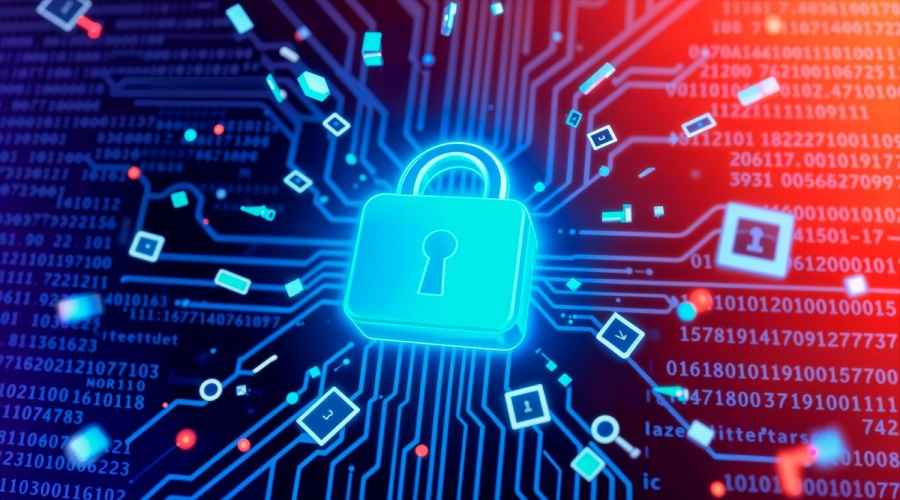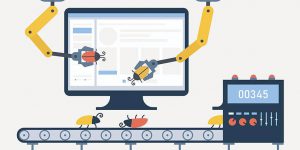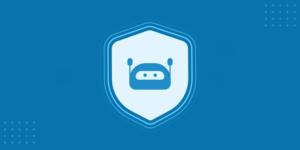
Ethical Hacking is one of the most lucrative professions. With advancements in technology, methods of hacking have also changed. Gone are the days when ethical hackers had to rely on traditional methods. Ethical hackers require more powerful and innovative tools to deal with complex cyber threats. AI (artificial intelligence) has emerged as a powerful weapon that makes ethical hacking more advanced. Integrating AI into cybersecurity strategies makes it easier to detect potential threats or vulnerabilities.
All in all, AI-driven tools provide numerous benefits to ethical hackers. However, there are some challenges that you should be aware of. In simple words, understanding the comprehensive role of AI in today’s cybersecurity landscape helps to yield optimal outcomes. Look no further! Read on to learn the role of AI in ethical hacking in a simplified manner and make an informed decision. Let’s get started…
Table of Contents
- What is Ethical Hacking?
- Need for AI in Ethical Hacking
- Role of AI in Cybersecurity World
- Faster Threat Detection
- Vulnerability Identification
- Proactive Response
- Automated Updates
- Behavioural Analysis
- Automated Remediation
- Prevents Phishing Attempts
- Benefits of Leveraging AI in Ethical Hacking
- Real-Time Detection of Security Threats
- Improve Efficiency and Automate Tasks
- Leverage Data-Driven Decisions
- Proactive Data Security Steps
- Phishing Email Detection
- Cost-Effective Solutions
- Best Practices for Integrating AI Tools into Ethical Hacking Strategies
- Choose the Right AI Tools
- Implementation of AI with Secure Strategies
- End-to-end Data Encryption and Storage
- Regular AI Audits
- Employee Training and Awareness
- Regular Monitoring and Maintenance
- Challenges with the Integration of AI in Ethical Hacking
What is Ethical Hacking?
Ethical hacking is a legal and authorized practice of hacking vulnerable systems or networks. Professional ethical hackers use numerous hacking techniques, including AI to find and fix security vulnerabilities in a system or network. Unlike malicious hackers, ethical hackers use these tools and methods with the permission of the owner. Their main goal is to prevent organizations (both private and government) from cyberattacks and improve their security systems.
Need for AI in Ethical Hacking
Ethical hacking is used to conduct penetration tests and stimulate attacks to recognize system vulnerabilities in real-time. This notifies businesses of the potential threat if their systems are contaminated. Also, it ensures enhanced data protection and privacy. Traditional cybersecurity tools, including firewalls, anti-virus software, etc. are frequently updated to identify security flaws. However, their sluggish response time causes a severe risk to data safety and integrity. Sometimes, they fail to identify potential vulnerabilities and threats in the system in real time.
In this situation, employing AI-driven cybersecurity tools alongside ethical hacking practices presents a viable path forward. AI tools are quick to detect system threats and vulnerabilities. Also, they block malicious traffic, ensuring no disruption within an organization. The best part is that AI is constantly evolving to make digital space safer. Therefore, ethical hackers should leverage robust AI-threat detection tools to stay ahead of digital crooks. Read on the upcoming section for the role of AI in ethical hacking.
Role of AI in Cybersecurity World

AI is in the mainstream today. AI-powered tools are considered the first line of defence for enterprises. They prevent the risk of malicious access to customers’ data, email phishing attacks, and more. Take a look at the following pointers to understand the capabilities of AI-driven ethical hacking tools:
1. Faster Threat Detection
Artificial intelligence-powered ethical hacking tools are fast to recognize online anomalies in real time. They warn organizations regarding potential threats and help them strengthen their entire system. Their instant response to threats prevent cybercriminals from taking any malicious step.
2. Vulnerability Identification
Machine algorithms automate the process of vulnerability identification, ensuring no security flaws in the digital space. As a result of this, digital crooks do not find any chance to make a way into the system and take advantage of it.
3. Proactive Response
Once AI tools recognize the threat in the system, they suggest a proactive approach to organizations. They suggest robust data security measures to prevent the assault of cyber criminals.
4. Automated Updates
With the integration of AI, organizations can update their software, ensuring no security flaws and improved functionality.
5. Behavioural Analysis
Based on previous experiences, AI tools can monitor user actions, and in case they find any suspicious activities, they notify the data security team to take immediate action.
6. Automated Remediation
Ethical hackers can automate AI tools to take a proactive approach to prevent the risk of malicious attacks. This way, these tools eliminate the need for manual intervention to take action against security flaws. They efficiently isolate infected files or systems, block nefarious IP addresses, and ensure 360-degree data protection.
7. Prevents Phishing Attempts
Using Natural Language Processing (NLP), AI tools analyse language patterns. By scrutinizing emails, they can show red-flag signs if any email is generated for phishing attacks.
Detailed Article: Phishing Attack Prevention: How to Phishing Scams Identify & Avoiding
Benefits of Leveraging AI in Ethical Hacking
The integration of artificial intelligence in threat detection and ethical hacking can yield numerous benefits. Here are some of the major benefits you should be aware of so that you can make informed decisions. Take a look…
1. Real-Time Detection of Security Threats
Traditional security tools take more time to detect security threats, leading to catastrophic financial events. By contrast, machine algorithms and natural language processing (NLP) are well-versed in identifying potential risks faster. The best thing about AI-driven tools is that they can analyse vast amounts of data in real time and identify patterns. In case they detect anomalies in patterns, they intimate information to ethical hackers. Based on the AI tools reports, ethical hackers find potential vulnerabilities, ensuring minimal to zero risk of cyberattacks.
2. Improve Efficiency and Automate Tasks
Although AI data security tools detect vulnerabilities in the early stages, the intervention of ethical hackers is vital to solving more complex problems. The best part is that these tools efficiently automate various tasks of ethical hacking. This allows ethical hackers to save their time and energy, which they can use to build robust strategies for the data security enhancement.
3. Leverage Data-Driven Decisions
The integration of artificial intelligence-driven tools helps ethical hackers gain insights into the vast amount of data. Based on AI analytics, they can make decisions to safeguard the network, system, and applications from the unprecedented assaults of cyber criminals.
4. Proactive Data Security Steps
AI analytics aid ethical hackers in focusing on proactive steps. They do not respond to the severe disruption within an organization once a malicious virus fails the entire system. Instead, they implement preventive measures to block the channels for infected IP addresses or files.
5. Phishing Email Detection
Phishing email detection is another crucial advantage of the integration of artificial intelligence in ethical hacking. The AI tools aid in understanding the context behind the language of the email. As a result of this email scrutinization, ethical hackers take prompt and immediate actions to keep the system from being corrupted.
Detailed Article: Methods for Identifying a Phishing Scams Email
6. Cost-Effective Solutions
AI tools offer cost-effective solutions. These tools largely eliminate the need for manual intervention. Moreover, they reduce the possibility of technological failures or financial scams associated with cyberattacks.
Best Practices for Integrating AI Tools into Ethical Hacking Strategies

Without a doubt, AI-driven tools can detect vulnerabilities faster than human beings. But there is a catch. The thing is that not only do ethical hackers take advantage of these tools, but also cyber attackers use them for cyberattacks. Understanding the safe and secure integration of AI tools into ethical hacking strategies can help you minimize the risk of potential cyberattacks. Here are some important pointers that you should keep in mind. Read on!
1. Choose the Right AI Tools
Selecting the right AI tool is a critical step in ensuring the security of data protection. This is because many AI tools are available in the market, but only a few are reliable. Hence, go through their customers’ reviews and testimonials to understand their past experiences with data security practices, tracking the system’s potentialities, transparency, and customer help desk.
2. Implementation of AI with Secure Strategies
When implementing AI into an organizational structure, it is essential to put some effort into making sure it is a safe practice. Otherwise, cyber attackers can use it to enter your system. In addition, it is important to give access of the system to only authorized personnel based on their roles. Other stakeholders should be restricted from accessing the data for which they are not accountable.
3. End-to-end Data Encryption and Storage
While integrating AI tools into business, make sure the data transmission or processing is end-to-end encrypted. Also, the huge data of customers should be stored with additional layers of security. In a nutshell, encryption refers to the interception of data with authorization. If somebody tries to read data without authorization, the sensitive information will remain unreadable and unusable.
4. Regular AI Audits
Regular AI audits are crucial for staying protected from cyber criminals. Once you start leveraging the power of AI-driven tools for the automation of tasks and data safety, you should not overlook the significance of their regular audits. Regular AI audits help ethical hackers know the vulnerabilities inside the data structure.
They detect biases or algorithm errors that can cause reputational or financial damage shortly. Typically, these audits include frequent monitoring of unusual activities, logging patterns, and efficiency of data security protocols. This way, ethical hackers address minor vulnerabilities on time to prevent them from becoming the cause of severe loss.
5. Employee Training and Awareness
Next, make sure to provide training to employees on how to use AI tools safely. It is true that these tools mitigate the risk of cyber threats. But they can lead to unauthorized access to data if employees do not know how to handle them. Hence, it is crucial to provide them with adequate training on how to use AI by following the company security protocols.
6. Regular Monitoring and Maintenance
Next, you should regularly detect unusual activity or behaviour of the AI tools. Doing so helps ethical hackers detect the signs of unusual activity, abnormal behaviour, and more. This way, ethical hackers can take prompt actions and ensure robust security of the systems.
Read on the next section to understand what all challenges you may face with AI integration in ethical hacking. Here we go…
Challenges with the Integration of AI in Ethical Hacking
This should not come as a surprise to you that the integration of AI into cybersecurity strategies brings challenges for organizations. Here are some challenges that you may face. Take a look…
1. Quality of Data
Organisations utilised extensive datasets to train AI algorithms, enhancing their precision in threat detection and response times. However, they fail to gather data due to various factors such as privacy concerns, regulatory practices, etc. This problem comes with multinational organizations that do not collect data from subsidiaries because of their different systems and formats. This lack of relevant data makes AI data security tools inefficient in vulnerability assessment.
2. Adversarial Attacks
Adversarial attacks are increasingly common these days. Cyber attackers often enhance the potency of their malicious files or systems to breach AI-driven data security and integrity.
What’s the solution then?
In such a situation, enterprises should consider investing money in research and development. Doing so will help organizations to ensure comprehensive protection of the AI Powered security systems.
Also Read: What is a Malicious URL | How do I block Malicious URLs?
3. Misinterpretation of Threats
Here’s one thing you should understand: artificial intelligence is based on machine algorithms. Therefore, it can misinterpret things. Sometimes, it generates false statements and identifies normal patterns as malicious attacks. These false positives or false statements lead to further investigation and the investment of money. In the end, they bring frustration when outcomes show no existence of threats.
4. Ethical Challenges
Another important thing enterprises should emphasize on is the incorporation of ethical practices and regulatory protocols into AI tools. Simply put, they should make sure AI-led cybersecurity strategies follow privacy regulations. This way, they can keep their data confidential and secure in the digital era.
The Bottom Line
So, this is all about the role of AI in ethical hacking. Hopefully, this article has been informative for you and will help you make proper use of AI in ethical hacking. In a nutshell, ethical hacking may lag if traditional security tools detect threats and vulnerabilities.
Traditional tools often follow a reactive approach and trigger the risk of a severe disruption. On the contrary, AI-led tools are proactive in implementing preventative measures once they diagnose potential security flaws. This way, artificial intelligence plays a crucial role in keeping cybersecurity one step ahead of cyber threats, provided the enterprises use trustworthy AI tools for ethical hacking strategies.
Thanks for reading!






